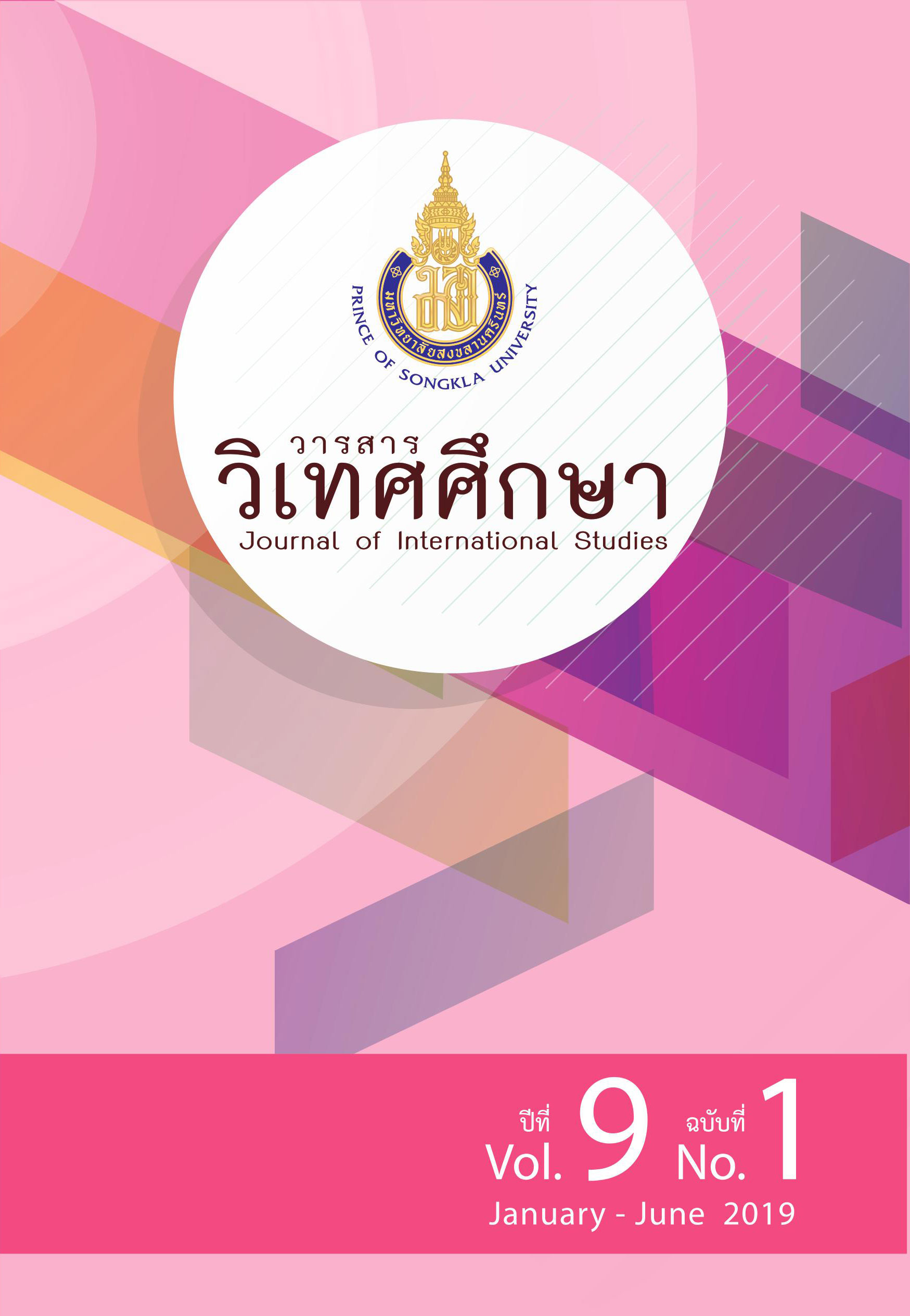A Genre Analysis of Book Review Written by Professional Critics Versus Online Consumer Critics
Main Article Content
Abstract
Online consumer reviews, as a type of Wordof-Mouth (WOM), are regarded by potential buyersas a source of information to reduce uncertainty in making buying decisions, and therefore could
impact a product’s sales. This type of review is different from the conventional reviews written by professional critics, as consumers are given the independence to write and publish their own reviews of a purchased product. As a result, online consumer reviews have become an attractive research topic for the academic circle. However,
comparative studies as to how professional critics and consumer critics write are still scarce. This
research therefore aims to explore such discrepancies, utilizing genre analysis as a framework, and focusing on the written structures of the two types of reviews. The total sample for this study was 50; 25 for professional reviews and 25 for consumer reviews. It was found that the written structure of the professional reviews were more structured and uniform, whereas the structure of the consumer reviews were inconsistent. It was also found that
professional critics keep their writing less personal and less persuasive, whilst consumer critics have the tendency to articulate their own personal reading experience.
Article Details
Statements and opinions expressed in articles herein are those of the authors and do not necessarily reflect the position of the editors or publisher.
Article, information, text, image, etc. which are published in Journal of International Studies, belong to Journal of International Studies. If anybody or any organization would like to use part or whole of them, they must receive written permission from Journal of International Studies before usage.
References
Bhatia, V. K. (1993). Analyzing genre-language use in professional settings. London: Longman.
Bhatia, V. K. (2002). Applied genre analysis: A multi-perspective model. Retrieved July 6 2016 from http://www.aelfe.org/documents/text4-Bhtia.pdf.
Bhatia, V. K. (2004). Worlds of written discourse: A genre-based view. London: Continuum.
Bhatia, V. K. (2012). Critical reflections on genre analysis. Model. Retrieved from www.aelfe.org/documents/03_24_Bhatia.pdf
Boatwright, P., Basuroy, S., & Kamakura, W. (2007). Reviewing the reviewer: The impact of individual film critics on box office performance. Qualitative Market Economics, 5(4), 401-425.
Dobrescu, L. I., Luca, M., & Motta, A. (2013). What makes a critic tick?: Connected authors and the determinants of book reviews. Journal of economic behavior & organization, 96, 85-103.
Dudley-Evans, T., & St. John, M.J. (1998). Developments in English for specific purposes: A multi-disciplinary approach. Cambridge: Cambridge University Press.
Jong, I. K. E., & Burgers, C. (2013). Do consumer critics write differently from professional critics?: A genre analysis of online film reviews. Discourse, Context and Media, 2(6), 75-83.
Khunkitti, W. (2005). Genre analysis of book reviews in journals in the English language field (Unpublished master’s thesis). Kasetsart University, Bangkok.
Motta-Roth, D. (1995). Same genre, different discipline: A Genre-based study of book reviews in academia. The ESPecialist, 17(2), 99-131.
Nicolaisen, J. (2002). Structure-based interpretation of scholarly book reviews: A new research technique. Retrieved July 6 2016 from https://web.archive.org/web/20050818220548/20050818220548/http://www.db.dk/jni/Articles/Abstract_Colis4.htm
Reinstein, D., & Snyder, C. (2005). The influence of expert reviews on consumer demand for experience goods: A case study of movie critics. Journal of Industrial Economics, 53, 27-52.
Schindler, R.M., & Bickart, B. (2012). Perceived helpfulness of online consumer reviews: The role of message content and style. Journal of Consumer Behavior, 11(3), 234-243.
Skalicky, S. (2013). Was this analysis helpful?: A genre analysis of the Amazon.com discourse community and its “most helpful” product reviews. Discourse, Context and Media, 2(1), 84-93.
Swales, J. M. (1990). Genre analysis: English in academic and research settings. Cambridge: Cambridge University Press.
Vermeulen, I. E., & Seegers, D. (2009). Tried and tested: The impact of online hotel reviews on consumer consideration. Tourism Management, 30(1), 123-127.
Willemsen, L., Neijens, P. C., & Bronner, F. (2010). Perceived expertise vs. perceived trustworthiness: The suppressed effect of source type on review attitude. In Okazaki, S. (Eds.), Advances in Advertising Research Vol.2. Wiesbaden: Gabler Verlag.
Willemsen, L., Neijens, P. C., Bronner, F., & Ridder, J. A. (2011). Highly recommended! The content characteristics and perceived usefulness of online consumer reviews. Journal of Computer-Mediated Communication, 17(1), 19-38.
Zhang, Z., Ye, Q., Law, R., & Li, Y., (2010). The impact of e-word-of-mouth on the online popularity of restaurants: A comparison of consumer reviews and editor reviews. International Journal of Hospitality Management, 29(4), 694-700


